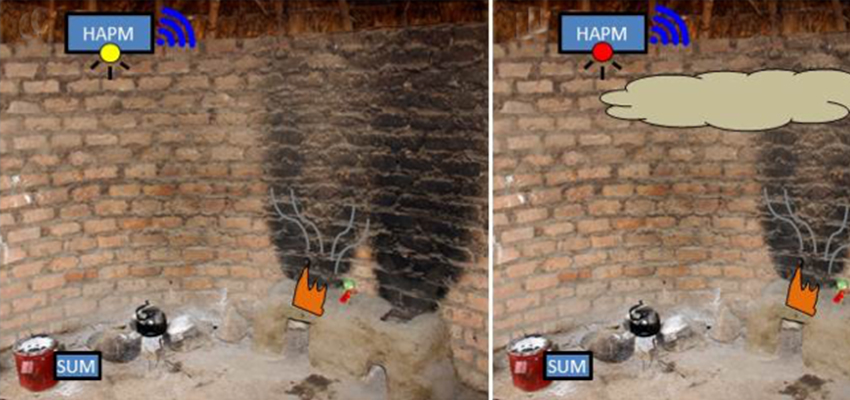
Challenges in household cooking and heating
Nearly three billion people rely on solid fuels (e.g. firewood, charcoal, dung, ag residues) to heat and cook in their homes. This compares to approximately 1 billion people who live without access to electricity. For many households, cooking over open wood fires, often indoors is common. This results in over 4 million premature deaths per year and increasing, due to high levels of indoor air pollution. During the last two decades, clean fuels and efficient cookstoves have commonly been used in interventions to achieve several co-benefits for indoor air pollution and associated health problems, deforestation and regional air quality, greenhouse gas emissions and contributions to climate change, and reduced economic and time burdens, especially for women. The dominant view, known as the energy ladder, was that households are budget constrained and choose products according to their cost, using cleaner and more efficient products as their wealth increases. A growing body of evidence indicates that as households gain access to clean fuels and stoves, they tend to continue using traditional methods, known as stacking. This significantly reduces positive outcomes, especially for health and climate. Approaches to overcoming this challenge can assist entrepreneurs to access large fundings pools that are being mobilized to reduce GHG emissions (climate finance).
Accessing green products through microfinance
ESAF Microfinance Investments Ltd serves communities in several states in India by helping households access “green products” (solar lanterns, water filters and efficient cookstoves) through a microfinance loan. ESAF is funded by the Dutch Development Bank (Nederlandse Financierings-Maatschappij voor Ontwikkelingslanden N.V., FMO) through their MASSIF fund to improve health and climate co-benefits. Based on preliminary survey research, stacking of traditional chulha and improved cookstoves among ESAF customers is common.
Green products evaluation
This project aims to evaluate incentives and information feedback to encourage healthy and safe households through the use of affordable, improved cooking and heating practices in low-income households in Madhya Pradesh, India. The research team is made up of development economists from Evidence for Policy Design (Harvard Kennedy School) and the Institute for Financial Management and Research - Leveraging Evidence for Access and Development (IFMR-LEAD, India), and engineers and social scientists from D-Lab (MIT) and Sensen, Inc. The project will evaluate the effectiveness of real-time monitoring of cookstove usage and emissions, information feedback, and loan repayment conditions linked to actual emissions on climate and health co-benefits. Several approaches will be tested in a pilot study, then the most effective methods will be evaluated in a randomized controlled trial (RCT) partially funded by FMO.
Responsible application of Internet of Things in International Development (RAITID)
Innovative research tools under development at D-Lab’s Responsible Application of Internet of Things in International Development (RAITID) group will be used in this project. Remote sensing, in addition to surveys, interviews and focus groups, can be a useful research tool for understanding human behavior and associated outcomes. However, sensor-based monitoring can be confusing, uncomfortable and invasive for the research subjects. Following data collection, analysis and report generation can take several months. Finally, results may not be easily understandable and research subjects may be left with no form of feedback or a solution to challenges they are experiencing.
The RAITID approach aligns with D-Lab’s Lean Research Principles and will incorporate opportunities to engage research subjects throughout the research project. This enables data and sensor measurements to be an interactive component in the overall intervention. In the same way that a Fitbit wearable sensor tracks and feeds progress back to the user about exercise, improved cookstove usage and indoor air quality will be tracked and fed back to the users during the ESAF evaluation (see figure).
Sensor measurements also provide the research team with objective data to compare with survey-collected data and determine outcomes from the intervention. Machine-learning algorithms are currently under development to reduce RAITID data analysis time so that stakeholders can benefit from results more quickly. Aside from gathering evidence for effective interventions to increase adoption of improved cookstoves, this is a great opportunity for the organizations involved in this project to share methodologies and contribute broadly to the international development community.
Contact
Dan Sweeney, Research Engineer


